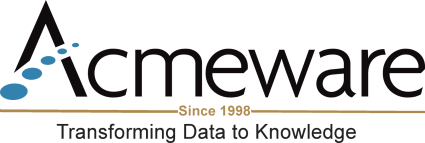CMS recently released the CY 2026 Outpatient Prospective Payment System (OPPS) Final Rule, which finalized several changes for the Hospital Outpatient Quality Reporting Program (OQR) Program. For the full text of the rule, see the Federal Register.
CMS recently published the CY 2026 Physician Fee Schedule (PFS) Final Rule which included policies finalized for the Quality Payment Program (QPP). CMS finalized updates to MIPS Value Pathways (MVPs) and Merit-based Incentive Payment System (MIPS). For the full text of the rule, see the Federal Register.
CMS recently published the FY 2026 Inpatient Psychiatric Facilities Prospective Payment System (IPF PPS) Final Rule which finalized changes to the Inpatient Psychiatric Facility Quality Reporting (IPFQR) program. All IPFs, which include psychiatric hospitals and psychiatric units of an acute care hospital or critical access hospital, paid under the IPF PPS must meet IPFQR reporting requirements. For the full text of the final rule, see the Federal Register.
CMS recently published the FY 2026 Inpatient Prospective Payment System (IPPS) Final Rule which finalized several changes to the Hospital Inpatient Quality Reporting (IQR) Program and Medicare Promoting Interoperability (PI) Program for eligible hospitals (EHs) and critical access hospitals (CAHs). For the full text of the rule, see the Federal Register.
CMS recently released the CY 2026 Outpatient Prospective Payment System (OPPS) Proposed Rule, which included proposals for the Hospital Outpatient Quality Reporting Program (OQR) Program. For the full text of the rule, see the Federal Register.
CMS recently published the CY 2026 Physician Fee Schedule (PFS) Proposed Rule which included proposals for the Quality Payment Program (QPP). CMS proposed updates to MIPS Value Pathways (MVPs) and Merit-based Incentive Payment System (MIPS). For the full text of the rule, see the Federal Register.
CMS recently published the FY 2026 Inpatient Psychiatric Facilities Prospective Payment System (IPF PPS) Proposed Rule which proposed changes to the Inpatient Psychiatric Facility Quality Reporting (IPFQR) program. All IPFs, which include psychiatric hospitals and psychiatric units of an acute care hospital or critical access hospital, paid under the IPF PPS must meet IPFQR reporting requirements. For the full text of the proposed rule, see the Federal Register.
CMS recently published the FY 2026 Inpatient Prospective Payment System (IPPS) Proposed Rule which includes several proposed changes to the Hospital Inpatient Quality Reporting (IQR) Program and Medicare Promoting Interoperability (PI) Program for eligible hospitals (EHs) and critical access hospitals (CAHs). For the full text of the rule, see the Federal Register.
CMS’ Merit-based Incentive Payment System (MIPS) is a pay-for-performance program where a higher score leads to higher reimbursement. Further, MIPS is a budget neutral program where those receiving a negative payment adjustment fund those receiving a positive payment adjustment. The Complex Patient Bonus can help you achieve a higher score.
CMS’ Merit-based Incentive Payment System (MIPS) is a pay-for-performance program where a higher score leads to higher reimbursement. In MIPS, there are four performance categories: Quality, Cost, Promoting Interoperability, and Improvement Activities. This blog will explore the Cost Category for 2024.
Is your Healthcare Data Being Governed?
In today's rapidly evolving healthcare landscape, effective data management is crucial for delivering high-quality patient care, ensuring regulatory compliance, and improving operational efficiency. While working with Meditech hospitals, we recognize that robust healthcare data governance and a well-defined reporting structure are essential components that must work together.
Enjoy this edition of MUSE Views, the podcast for the MUSE community, as we talk with key Commercial members to focus on timely products and services to enhance your IT environments, productivity, workflows, and more. In this show from March 2024, Joel Benware discusses the transition from a community hospital CIO to President of a vendor company, and what makes Acmeware special.


